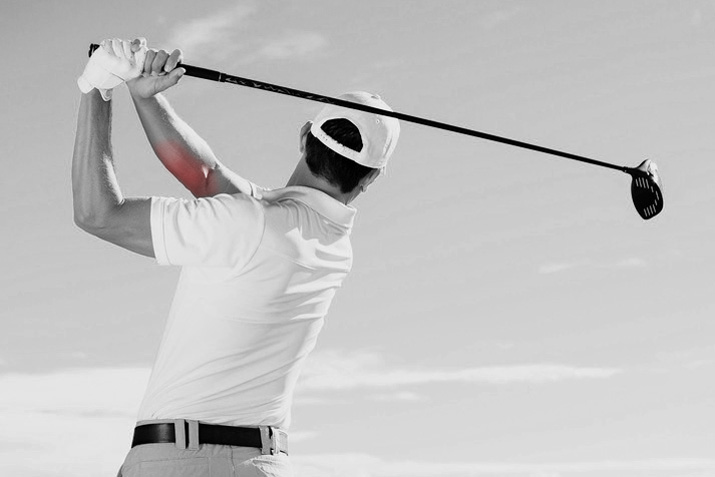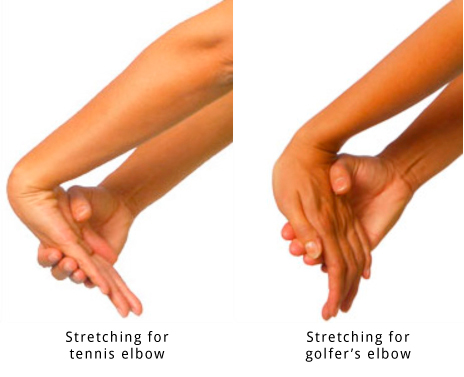The Difference Between Golfer’s Elbow and Tennis Elbow
Posted on June 15, 2017 by admin
Medial epicondylitis, also known as Golfer’s elbow, is a condition where the tendons on the inner part of the elbow are inflamed or injured. The tendons on this side are attached to the muscles that help bend the wrist and fingers. Inflammation of the tendon on the outer portion of the elbow is called Lateral epicondylitis or Tennis elbow. An individual with this condition will have pain or difficulty extending the fingers or bending the wrist backwards. Although they are commonly known as Tennis elbow and Golfer’s elbow, it does not mean only people who regularly play tennis or golf experience this. Normally, these conditions occur when that area is overused.

Who are affected?
Not only golf and tennis players are affected, many individuals who overuse their forearm by bending the wrists can be affected too. Tennis elbow is common in adults between the age of 30-50. Individuals who are plumbers, cooks, or carpenters are more at risk for developing this condition due to overworking of the muscles and inflaming the tendon. For individuals who garden, shovel or play golf frequently may be at higher risk of developing medial epicondylitis as these actions mainly require the use of flexor muscles in the forearm.



Symptoms
For Tennis elbow, symptoms include:
- pain radiating from outside of the elbow down to the forearm
- tenderness on the outer part of the elbow
- weak grip or weakness in forearm
- pain is present when gripping
For Golfer’s elbow, symptoms include:
- pain and tenderness on the inner part of the elbow extending to the inner forearm
- stiffness
- weakness in hands and wrists
- numbness or tingling sensation in the ring and pinky finger
Normally, treatments for both medial and lateral epicondylitis are non-surgical. The most important treatment for these conditions is to rest or reduce the amount of strain on the tendon and muscles surrounding the elbow. This treatment may require wearing a brace or splint. Other treatments available are ice, stretch, or electro therapy.

If these conditions worsen or do not show any improvement, find a licensed health care provider